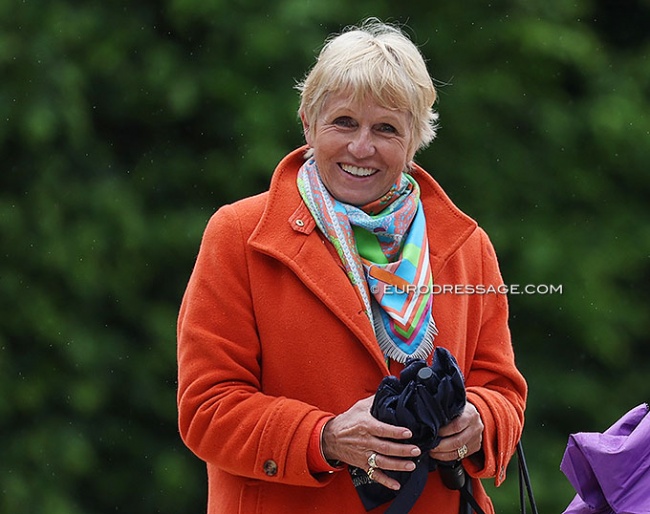
Guest columnist of this week is German 5* judge Katrina Wüst, who joins the debate about horse welfare, social licence to operate and the public's perception on the use of spurs and double bridle.
Wüst was a successful dressage rider from the early 1970s to the the 80s. A member of the German B-squad for 10 years, she competed at German championships, winning more than 60 competitions at a high level. At the beginning of the 90s, Katrina retired from competition and became an FEI judge. Wüst has judged at many international competitions, including World Cup finals, European and World Championships and the Olympics. She helped in the development of the FEI Dressage Judges Handbook and reconverted freestyle judging with the Degree of Difficulty system.
Welfare is an Essential Element of Dressage Judging
At the moment the discipline of dressage seems to be taking the brunt of attacks regarding horse welfare. This puzzles me. I think people are unaware of how closely dressage is tied to horse welfare. Whereas Jumping and Eventing are results based disciplines, for dressage not only the results but the way these results are achieved are considered in the score.
Dressage focuses on the ability to produce expressive and powerful movements with a horse that is “calm, supple, loose, flexible, confident, attentive and keen," according to the FEI Dressage Handbook. The scores which are given are done in the context of these overarching criteria. Each of these elements is consistent with and a reflection of horse well-being. Thus, we can say that horse welfare is embedded into and integral to dressage.
Have people lost sight of this? Have people lost sight of how each movement is judged against principles which reinforce horse welfare? These qualitative elements can be difficult to evaluate and require a trained eye. As part of the judges' education process we are constantly working to develop means to improve our judges’ expertise in this area.
Looking at the Dressage Handbook it can be clearly seen that a score of better than a 6 (or even a 5) can never be achieved without general consistency to these attributes. The coming directory of 'firewalls' also reinforces these values.
Do riders always achieve the desired results? Certainly not, but anyone with competitive ambitions is well aware that any indication of a risk to horse welfare will immediately impact his/her score. What better motivation can there be? Are judges always able to decern the degree of contentment experienced by the horse? No, but we are constantly trying to improve our ability to perceive these intangible factors.
A dressage horse is asked to perform certain movements at specified places with power and grace. He will be scored on his ability to do so as being a confident, relaxed and contented equine partner. I am not suggesting that the other disciplines are uncaring regarding welfare. Certainly not as any good horseman and competitive rider knows the importance of welfare to maximize the longevity of their horses…..and good horses don’t grow on trees. However, I do think it is fair for me to point out how fundamental horse welfare is to dressage and the sport should be given credit in this regard.
by Katrina Wüst
Do you want to respond to this column, do you differ in opinion? Eurodressage loves to hear from you. Feel free to send a "letter to the editor" and contribute to the discussion: info@eurodressage.com
Related Links
Wüst's Plan: The Standardization of the Degree of Difficulty
Wüst, Törnblad and Roudier New O-Judges
Striking a Chord: Katrina Wust On Judging Freestyles and the 2017 Pacific League World Cup Finals
Judges Wust and Lang Conduct Clinics in Hungary to Improve Country's High Performance Dressage
Wust, Keynote Speaker at 2019 French Judges Training Seminar
Wust, Keynote Speaker at 2015 British Dressage Judges Convention
Related Links in Horse Welfare - SLO Debate
Theo Ploegmakers: "Greatest Threat to the Sport is The Public's View of The Way We Handle Horses"
Minna Tallberg: “You Can’t Use Force Anymore”
Minna Tallberg: Stakeholders Benefit from a Status Quo
Dr. Inga Wolframm: "What is a Piece of Tack?"
David Hunt: The Double Bridle as a Sport Issue, not a Welfare Issue
Horse Welfare, Key Point of Discussion at 2022 IDRC / IDTC General Assembly
Joint Letter from IDRC/IDTC Sparks Controversy and Debate on Social Licence